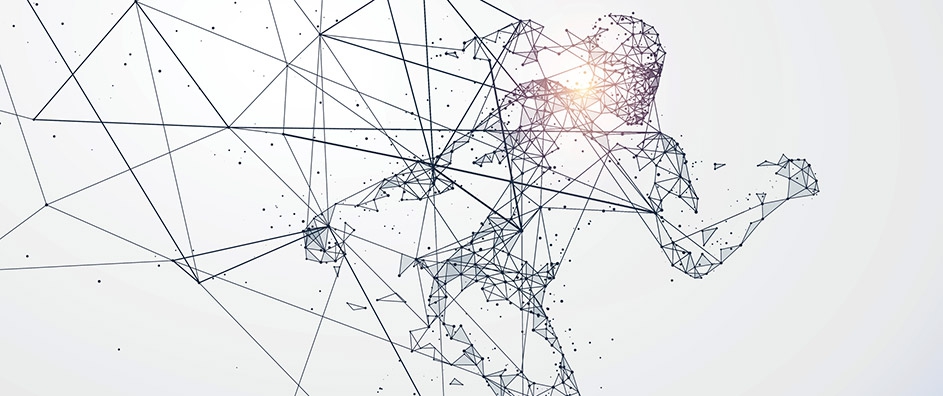The views expressed in our content reflect individual perspectives and do not represent the authoritative views of the Baha'i Faith.
It’s one thing to passively undergo cultural change—but it’s another thing entirely to actively try, through words and deeds, to change your culture.
The first piece in this series of articles presented the conscious evolution of culture as an alternative to following tradition. The second piece showed how the Baha’i pattern of community life fosters this kind of endeavor. Now, in this final essay, I’d like to talk about some complexities of trying to change a culture from within, and how the Baha’i teachings present an empowering vision of conscious transformation.
Living in a culture is kind of like operating a car. When you’re driving, you’re thinking about the road ahead of you, what other drivers or pedestrians are doing, or the directions to get to your destination. You tend not to think about the car itself. By driving the car, you forget about the car.

As we go about our life in this world, culture provides the language to describe our experience. Culture is the car. The assumptions, expectations, habits, and ingrained attitudes we share with others provide a ready-made basis for interacting with them. Culture facilitates living. But as we live, the culture that informs our thoughts and behavior remains largely invisible.
Have you ever had a conflict because you and someone else come from different cultures? All the invisible impulses we prefer not to examine aren’t shared by the other person. They’ve got their own cultural gear, just under the line of sight, that they too have difficulty describing or articulating. But what if that’s the part of yourself you’re trying to transform?
Think about what it would take to consciously try to move our own culture in a particular direction. How would we do it? We’d have to start taking action. We’d have to think about what we’re doing. But what gives structure and content to all of that action and thought? No less than the very culture we’re trying to change! That makes culture change one of the hardest tasks we can imagine.
Some people respond to that by despairing of ever changing anything. But I am more hopeful. For one, I tend to agree with social theorists, philosophers, and other thinkers that believe all fixed, seemingly stable situations contain inconsistencies, contradictions, and loopholes that make dramatic transformation not only possible, but at some point inevitable. Secondly, I share the confidence of the Baha’i teachings that humans have an immense capacity for using knowledge to innovate our way out of difficulty. For example, Abdu’l-Baha had this to say about the human power of discovery:
The spirit of man is a circumambient power that encompasseth the realities of all things … There is, for example, the power of steam, and photography and the phonograph, and wireless telegraphy, and advances in mathematics: each and every one of these was once a mystery, a closely guarded secret, yet the human spirit unraveled these secrets and brought them out of the invisible into the light of day. Thus is it clear that the human spirit is an all-encompassing power that exerteth its dominion over the inner essences of all created things, uncovering the well kept mysteries of the phenomenal world. – Abdu’l-Baha, Selections from the Writings of Abdu’l-Baha, pp. 178-179.
In this context, Abdu’l-Baha focuses on outward realities rather than inner realities. But the lines of comparison should be clear—the human spirit is capable of understanding what is hidden, obscure, and does not make itself readily apparent. With the power of our spirits, our intelligence, our ability to see beyond the obvious, we discover secrets, unravel them, and bring forth wondrous discoveries and inventions. This workmanship can be turned in upon ourselves as well. We can re-invent the culture that shapes our thoughts and actions.
In a passage dwelling on similar themes, Abdu’l-Baha laments that humanity has used these powers of knowledge to develop ever more deadly weapons of war. His hope? That instead we might use our intellects to transform the way we act and think:
God gave this power to man that it might be used for the advancement of civilization, for the good of humanity, to increase love and concord and peace. But man prefers to use this gift to destroy instead of to build, for injustice and oppression, for hatred and discord and devastation, for the destruction of his fellow-creatures, whom Christ has commanded that he should love as himself!
I hope that you will use your understanding to promote the unity and tranquillity of mankind, to give enlightenment and civilization to the people, to produce love in all around you, and to bring about the universal peace. – Abdu’l-Baha, Paris Talks, p. 42.
No one can transform a culture overnight. Sometimes substantial cultural change might be confined to a limited portion of a society. But the intellect is a mighty power within us. As we transform our social environment, that environment gradually changes us as well. As we change, new opportunities for transformation emerge.
The Baha’i teachings set out some guideposts that can remind us of the direction we’re trying to go: towards unity, tranquility, enlightenment, civilization, love, and universal peace. They lend purpose and inspiration to any Baha’i-inspired endeavor in the conscious evolution of culture.
Attainment of these goals is possible because we are the sort of creature that makes these things possible.
You May Also Like
Comments

















What I learned surprised and saddened me, for not only did men oppress women for economic reasons, and are still doing so, but many women compete with other women for all kinds of material benefits, and will try to hold their own sisters back iIn some cases. Our ...country in the US was built on the backs of slaves, women, the poor, and native Americans. It is a testament to the spirit of humanity, but not, I'm afraid, to the dreams of the founding fathers. IMHO.